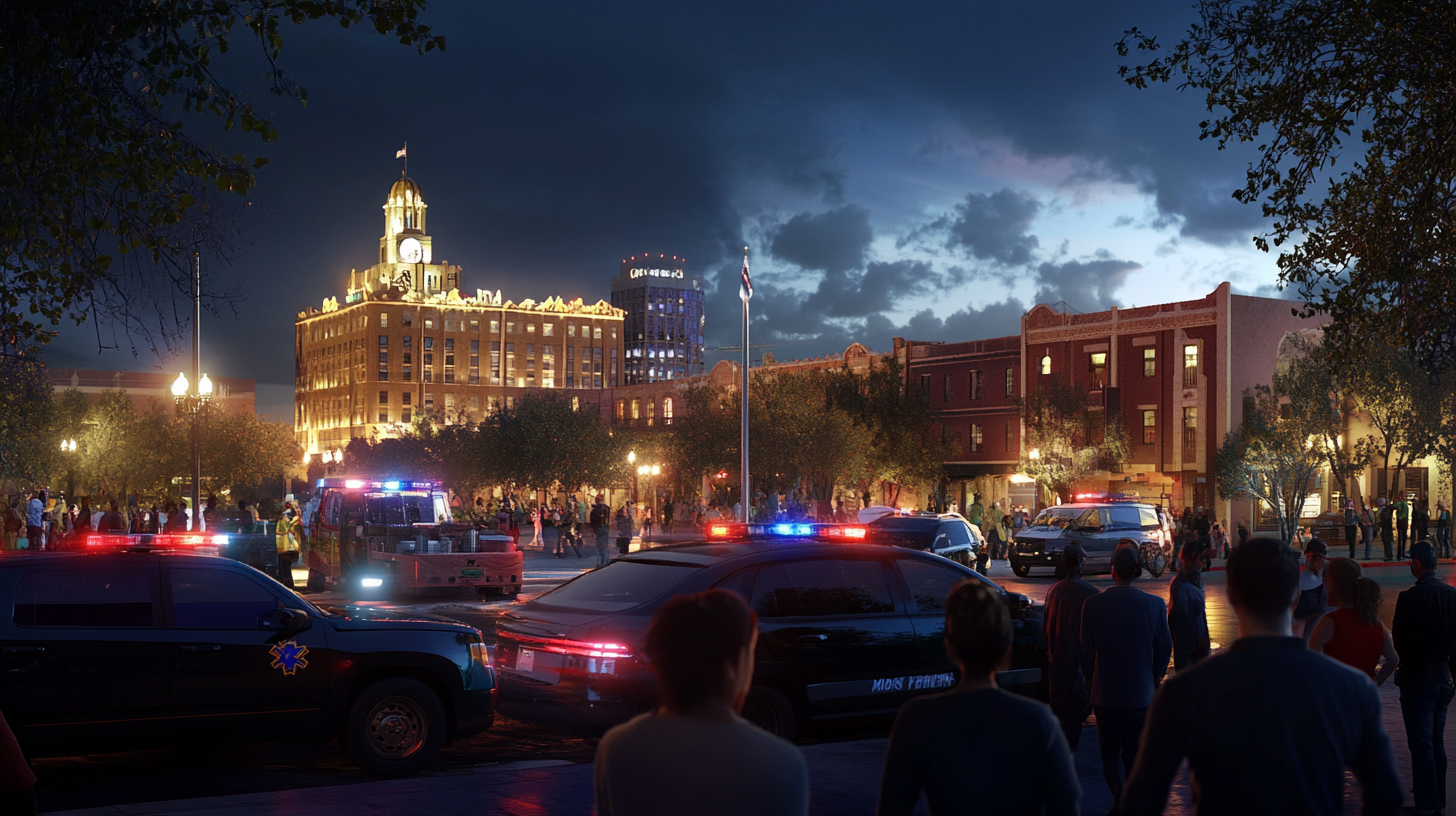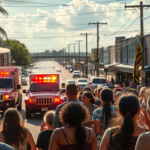Gang Member Arrest in Brownsville Highlights Larger Concerns in the Rio Grande Valley
A significant arrest in Brownsville brings to light ongoing criminal challenges facing the Rio Grande Valley (RGV). Cesar Silva-Aguirre, an alleged member of the notorious Gulf Cartel and Paisas gang, was apprehended on charges of felony illegal re-entry and has a history of drug smuggling. This arrest underscores the complex issues of drug trafficking and illegal immigration that continue to impact the local communities of South Texas.
Details of the Arrest
On Wednesday, U.S. Border Patrol agents and Cameron County Constables Precinct 2 coordinated the arrest of Cesar Silva-Aguirre, a Mexican national, in Brownsville. According to Border Patrol Chief Michael Banks, Silva-Aguirre is a known drug smuggler with dangerous ties to criminal organizations, including the Gulf Cartel and Paisas gang. He was charged with felony illegal re-entry, having previously been deported for felony possession with intent to distribute.
Chief Banks emphasized the seriousness of these affiliations in his statement: “Silva-Aguirre’s arrest is a significant step in disrupting organized drug trafficking operations along the border. Our ongoing collaboration with local law enforcement is crucial in addressing these complex challenges.”
Contextualizing RGV’s Ongoing Struggles
The Rio Grande Valley, a region steeped in cultural diversity and historical significance, finds itself at the forefront of national conversations around border security and drug trafficking. South Texas has long contended with these issues due to its geographical proximity to Mexico and its expansive, rugged border terrain.
Local law enforcement agencies, like the Alamo Police Department, frequently engage in operations targeting drug-related activities, such as the recent narcotics investigation in Donna. Under the supervision of Lt. Eduardo Garza, the Alamo Police Department continues to enhance collaborative efforts to tackle drug smuggling within the region.
Community Impact
The presence of organized crime and drug smuggling activities profoundly affects Valley residents. The resulting crime not only threatens the safety of communities but also burdens local economies and resources. Residents commonly express concerns about public safety and the potential influence of cartels in local neighborhoods.
Alma Mendoza, a Brownsville community leader, highlights these impacts: “While we are deeply grateful for the vigilance of our local law enforcement, these arrests expose a harsh reality. It reminds us that persistent efforts are necessary to safeguard our communities and prevent the sell and misuse of drugs among our youth.”
Efforts to Mitigate Crime and Support Communities
Cameron County, along with other RGV areas, is heavily engaged in designing initiatives and partnerships aimed at reducing crime rates and supporting affected communities. Recent efforts include partnerships between Cameron County and the city of Harlingen to assist flood victims following severe weather conditions. These collaborative projects address multiple community issues simultaneously, enhancing overall resident safety and welfare.
Moreover, infrastructure concerns also remain critical, as evidenced by the Texas Department of Transportation’s announcement of the temporary closure of a bridge in Willacy County due to erosion from heavy rainfall. Such closures can hinder law enforcement operations and necessitate coordinated responses for community safety.
Looking Ahead: Challenges and Opportunities
The arrest of Silva-Aguirre, while a triumph for law enforcement, also highlights ongoing and future challenges in the RGV. Balancing security needs with community interests and resources is vital to sustainable growth. The region continues to emphasize collaboration and intelligence-driven policing to combat the trafficking networks that exploit the U.S.-Mexico border.
Simultaneously, it offers opportunities for shaping preventive measures and community resilience. Enhanced education programs and support for local families can help mitigate the root causes of crime and drug abuse.
Encouraging Community Collaboration
As stakeholders work towards long-term solutions, engaging Valley residents remains key. Public forums and workshops foster dialogue and provide platforms for residents to participate in developing strategic responses to crime and safety issues.
For actionable contributions, local authorities encourage residents to report suspicious activities through hotlines and community watch programs. This collective approach ensures that everyone in the RGV has a stake in fostering safer, more resilient communities.
In conclusion, while Cesar Silva-Aguirre’s arrest represents a decisive action against organized crime, it serves as a pivotal moment that calls on all Valley residents and leaders to continue their steadfast commitment to nurturing a secure and thriving environment for all.







